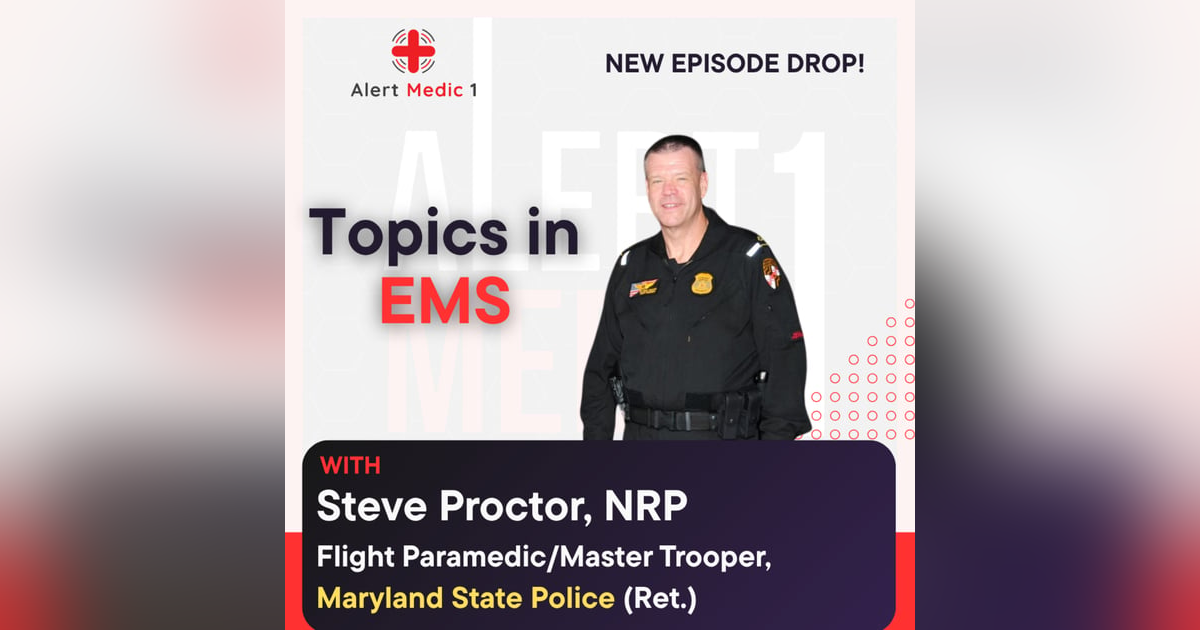Topics in EMS w/ Steve Proctor, Flight Paramedic/Master Trooper, Maryland State Police (Ret.)

Summary generated by Riverside FM AI
Summary
This conversation explores the evolution of emergency medical services (EMS) through the personal journey of Steve Proctor, a retired flight paramedic with the Maryland State Police. It delves into the historical context of EMS, the impact of media on career choices, the role of medical directors, and the advancements in training and protocols. The discussion highlights the challenges faced by EMS providers, particularly in urban environments, and the integration of new technologies in the field. Proctor reflects on the importance of understanding the roots of EMS and the ongoing evolution of the profession. In this conversation, Steve Proctor and Mustafa Sidik discuss the evolution of paramedic education, the importance of critical thinking, and the challenges faced by paramedics in the field. They explore the need for higher education standards, the blurring lines between EMT and paramedic roles, and the significance of mentorship in shaping future educators. Additionally, they delve into the unique aspects of tactical medicine and the impact of continuing education on patient care.
Takeaways
- The TV show 'Emergency!' inspired many to pursue EMS careers.
- Early EMS was often run by funeral homes and lacked coordination.
- The introduction of ALS transformed emergency medical care.
- Medical directors play a crucial role in shaping EMS protocols.
- The evolution of training has led to more advanced techniques in EMS.
- Historical context is essential for understanding current EMS practices.
- The Red Cross has been pivotal in early first aid training.
- Urban environments present unique challenges for EMS providers.
- Aviation medicine has advanced significantly in recent years.
- The future of EMS will continue to evolve with new technologies. Continuing education is essential for EMS providers.
- The journey into education can be unexpected but rewarding.
- Critical thinking is crucial for paramedics.
- Repetition is key to instilling knowledge in students.
- Higher education standards are needed in paramedicine.
- The roles of EMTs and paramedics are becoming blurred.
- Mentorship plays a significant role in professional development.
- Tactical medicine involves more than just treating injuries.
- Education is vital for improving patient care.
- Paramedics must stay updated on both medical and law enforcement skills.
Chapters
00:00 The Journey into EMS: Early Influences
05:39 The Role of Media in Shaping EMS Perception
10:54 The Impact of the Hart Mobile and ALS Development
15:51 The Importance of Historical Context in EMS Training
21:05 The Role of Red Cross in EMS Education
25:55 Early Experiences in Emergency Medical Services
31:28 Transitioning to Paramedic Roles
37:59 The Evolution of MSP and Trauma Care
48:12 Influential Figures in Emergency Medicine
54:12 Transitioning into Education: A Personal Journey
01:01:02 Defining Clinicians vs. Technicians in EMS
01:06:45 The Need for Standardized Education in EMS
01:13:53 Effective Teaching Strategies and Approaches
01:18:55 Exploring Controlled Substances in Emergency Medicine
01:24:00 Education and Training in Paramedicine
01:35:17 Insights into Tactical Medicine
01:45:04 The Impact of Mentorship in EMS